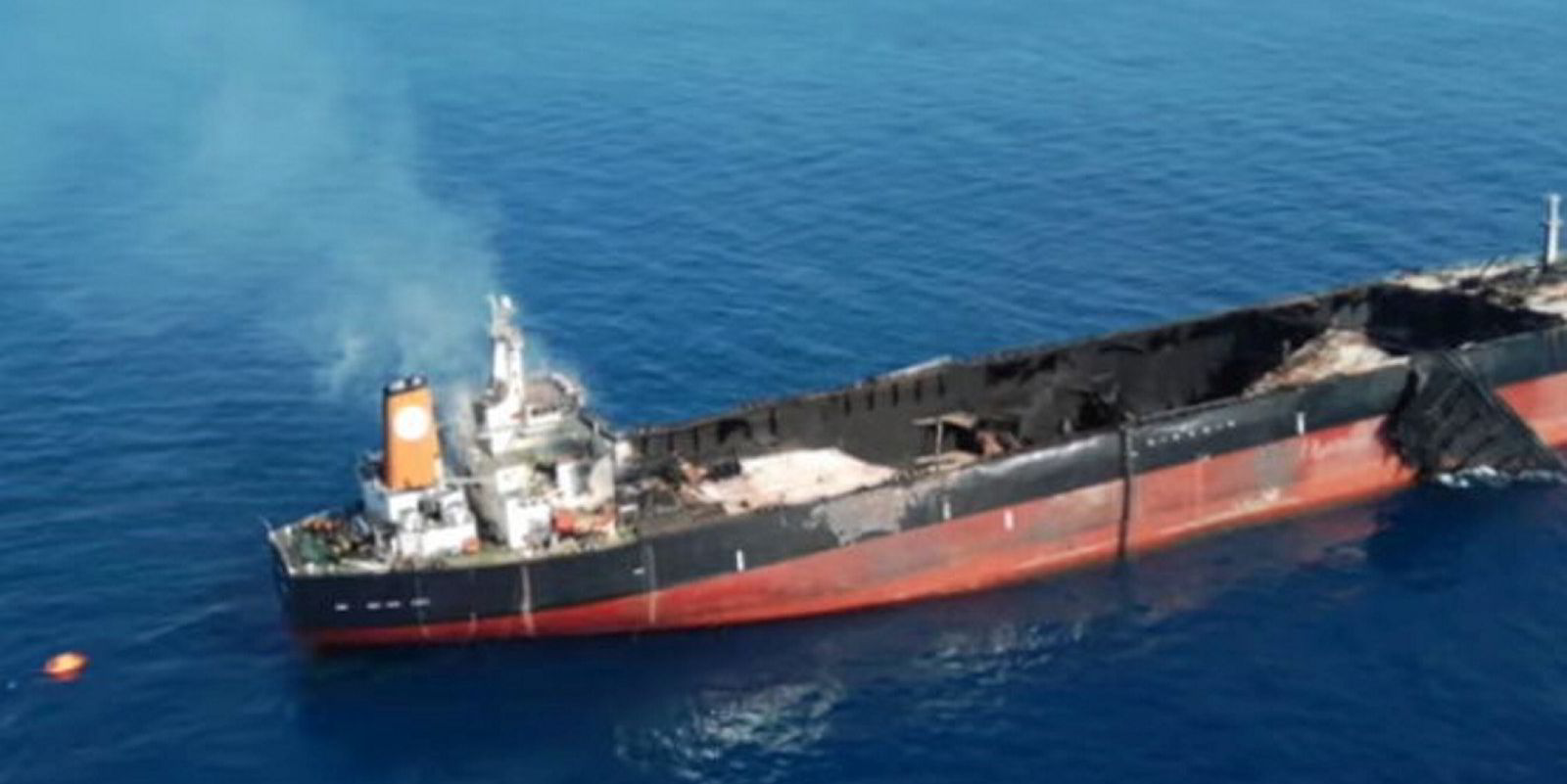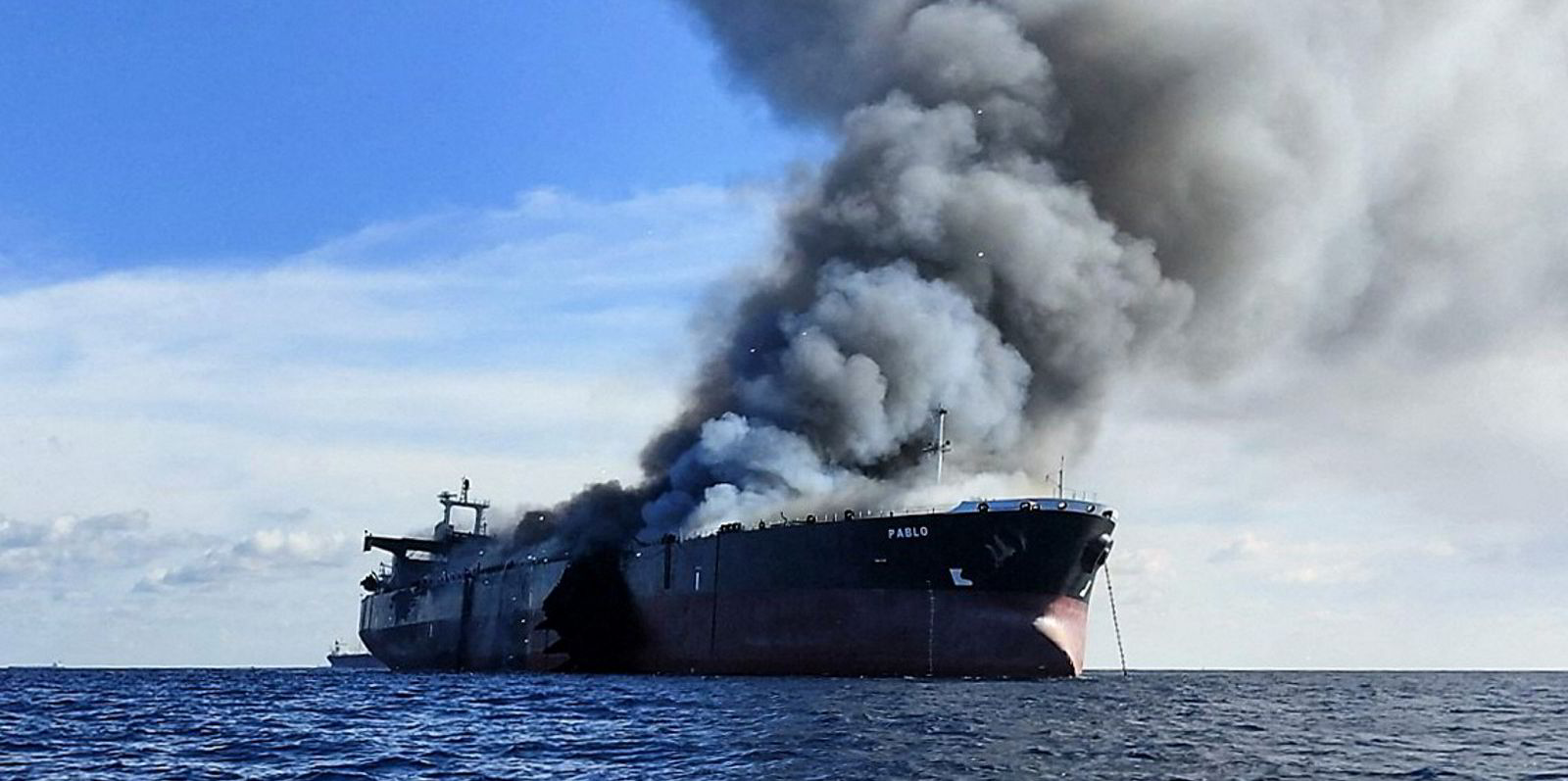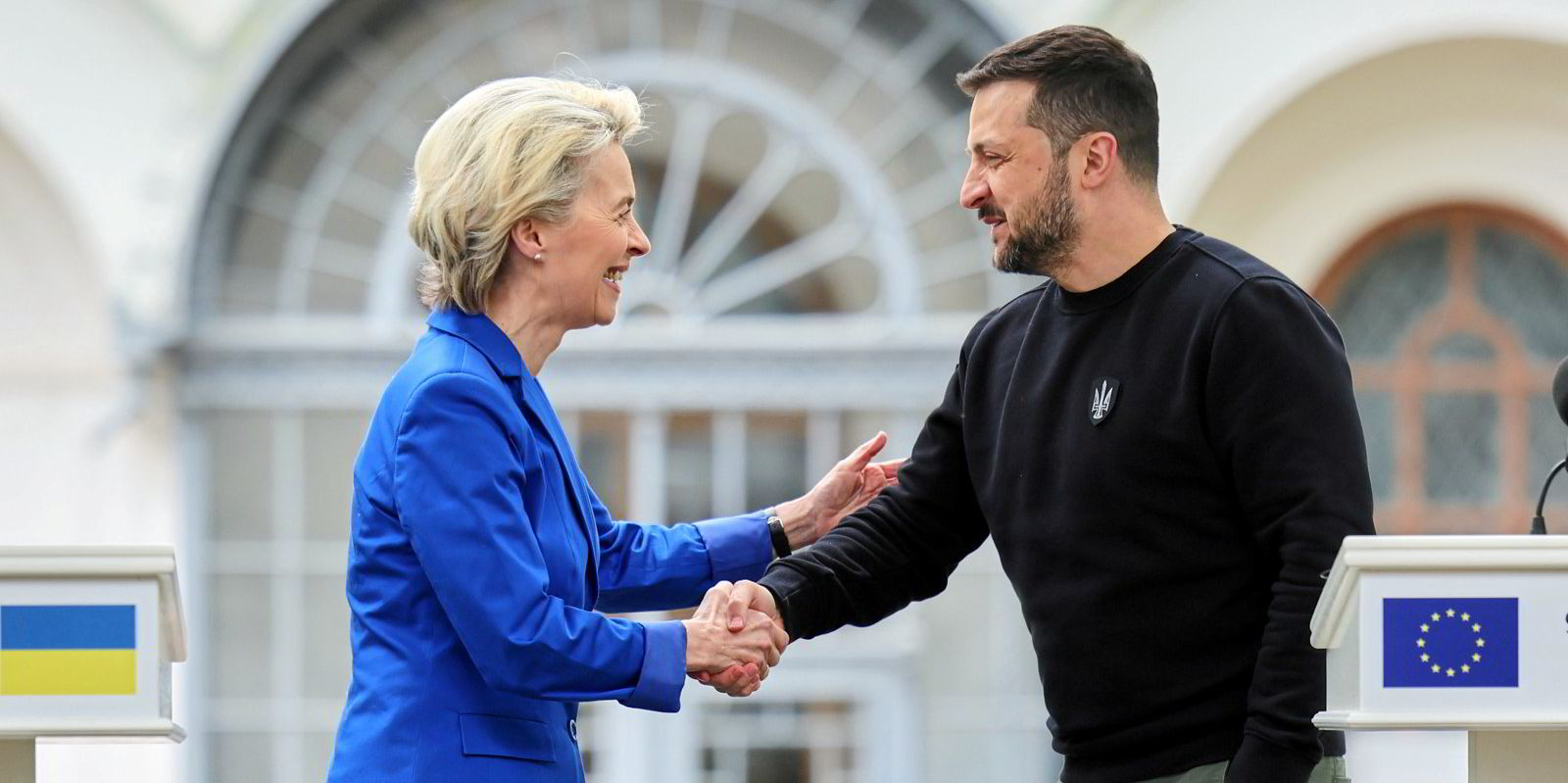European Union plans to crack down on operators shrugging off Western oil sanctions against Russia will boost the earnings of those respecting them, a senior Greek tanker executive said on Friday.
The EU started talks on Wednesday on an 11th round of sanctions against Russia, mainly to prevent companies flouting measures imposed in the 10 previous rounds.
The talks include tackling ship-to-ship transfers of Russian oil traded in violation of Western price caps, as well as barring port calls in Europe by vessels that have carried Russian cargoes.
EU measures to curb this “grey fleet” will limit tonnage supply and benefit ships steering clear of such trades, Aristidis Alafouzos, chief executive of Oslo-listed Okeanis Eco Tankers (OET) said on Friday.
An EU move in this direction would marginalise the grey fleet further, pushing it into a category close to the “black” fleet — ie, ships carrying Iranian and Venezuelan oil at “zero interaction” with established owners, bankers, agents and insurers, Alafouzos argued.
“This is an effective removal of tonnage from the international ‘white’ fleet,” he told analysts in a conference call to discuss his company’s results.
OET, an owner of 14 modern, scrubber-fitted VLCCs and suezmaxes, posted record quarterly earnings on Friday.
Footing the bill of disaster
Alafouzos acknowledged the environmental risks amid the current geopolitical set-up.
He pointed to the accident of the 98,600-dwt Pablo (built 1997) — an old aframax that blew up off Malaysia this month and which no insurer or salvor will touch for fear of falling foul of Western sanctions.
“Luckily, so far pollution has been minimal, but let’s see who covers the bill for the recovery of the vessel,” Alafouzos said.
Grey or black fleets are usually insured by “small marginal outfits that issue a certificate … and consider the consequences only once they occur”, he said.
“I am convinced that the owner and likely the insurance will disappear and potentially leave the bill with the nations affected. We have an example now with the … Pablo.”
Such concerns are not new. The Turkish government raised similar warnings last summer, when it was alerted to tankers crossing the Bosphorus with fake insurance certificates.
Turkey then insisted that protection and indemnity clubs provide extra insurance certificates to allow vessels to cross the Turkish Straits.
Owners of above-board, modern tankers such as OET, however, can expect to make more money.
“Although environmentally scary, all of the above is extremely positive for the normal fleet,” Alafouzos said.
“We have a rapidly ageing fleet and a large grey/black fleet that leaves normal tonnage to meet inefficient long-haul service demand.”
Adding tighter environmental rules kicking in next year, market barriers for “less sophisticated owners” will rise “and even more so to the less efficient ones”.






